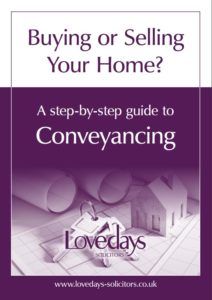- You & Your Family
- Your Job
- Family Law
- Divorce and Separation
- Finances on Divorce
- Dissolution of Civil Partnership
- Separation
- Cohabitation Agreements
- Finances on Breakdown of Cohabitation Relationship
- Prenuptial Agreements
- Grandparents' Rights
- Step-Parents' Rights
- Child Maintenance
- Parental Responsibility
- Paternity Disputes
- Buying Property Jointly
- Probate
- Wills
- Your Property
- Conveyancing
- Partnerships
- Disputes
- Boundary Disputes
- Dealing with Rent Arrears
- Japanese Knotweed Claims
- Landlord and Tenant Disputes
- Landlord Harassment & Illegal Eviction
- Negligence Claims Against Builders & Developers
- New Build Property Disputes
- Noisy Neighbour Disputes
- Personal Debt Collection
- Property Misrepresentations Claims
- Rights of Way Disputes
- Section 21 No Fault Evictions
- TOLOTA Claims
- Tree & Hedge Neighbour Disputes
- Your Business
- About Us
Cohabitation Agreement Solicitors
These days many couples decide to live together without getting married or entering into a civil partnership. This means that they are often not protected by law if the relationship breaks down at any point or if one partner dies in the way that you would be if you were getting divorced, and it can lead to some bitter disputes when trying to resolve what happens to children and finances.
When moving in together, it is therefore advisable to put together a cohabitation agreement, which outlines the arrangements for a family and any financial assets in order to protect the rights of everyone involved and avoid a lot of unnecessary heartache further down the line.
Cohabitation agreements are legal documents and so they need to be professionally drafted in order to ensure that they are valid and fair to all of the parties involved. At Lovedays Solicitors, we are experts in this field, and our friendly and professional team can take you through all of the aspects that you need to consider before drafting an agreement that works for all members of your family.
The Legal Status of Cohabitation Agreements
In the UK, the rights of those who are married or in a civil partnership are automatically entitled to certain rights in the event of a death or divorce, but because those who are cohabiting have not entered into any legal status, they are not extended the same rights and it could leave one partner with nothing at all.
A cohabitation agreement is therefore the recommended route for couples living together, especially if they have a mortgage, children or any financial agreements. This takes the form of a contract that outlines how you will manage your money matters and can be drafted before you move in together or at any future point in the relationship. If all parties have been honest about the situation, it is likely that a court will enforce the terms of a cohabitation agreement if it has been properly prepared.
Cohabitation agreements are considered to be legally binding in the UK as long as they have been written as a formal legal deed. This means that all parties need to have been completely transparent and not dishonest during the process, and that each person has received proper legal advice regarding the terms of the agreement. For a cohabitation agreement to be valid, it must be entered into freely and voluntarily and it must be signed by each person.
In order to ensure that the cohabitation agreement is legally binding, it is important to ensure that it has been professionally drafted by a solicitor who can advise you on your rights and what should be covered. It is also important to revisit the agreement periodically and update it with any significant life changes, such as the birth of a child, moving house or a death in the family. This will ensure that all the terms are relevant and up to date when the agreement is needed.
{quote}
Key Components of a Cohabitation Agreement
There are a number of components that need to be included in a cohabitation agreement, and one of the biggest aspects of this will relate to property and how it will be divided if you split up. If only one party owns the property then the agreement can outline that this should be kept separate from any joint assets, ensuring that the non-owner cannot make any claim over it. If the property is owned jointly, then the agreement can not only record this, but it can also outline what share of the property each person owns, allowing an easier division of funds if the property is sold.
As a couple, you are likely to have other financial responsibilities such as bills, vehicles, and other assets. The cohabitation agreement can outline what contributions each partner makes to things such as mortgage payments and other bills, and will determine how anything in joint names will be managed at the end of a relationship.
If you have children, it is important that you include them in the cohabitation agreement. As parents, there is some legal provision to decide how children should be cared for, but this can be determined in the cohabitation agreement by thinking about aspects such as living arrangements and financial contributions. Relationship breakdowns can often be acrimonious, and so making these decisions in advance can often be more effective in taking the best interests of the children into account.
A cohabitation agreement can also cover a range of other matters relating to asset and property ownership, or rental agreements. It is the opportunity to set out everything that you share and determine what will happen to it if you are no longer in a relationship together.
Why You Need a Cohabitation Agreement
When you live together without getting married or undertaking a civil partnership, you are not protected by any rights. Many fall into the trap of believing that they are governed by common law rights, but this law does not actually exist, and therefore when a relationship ends, some people can find that they are left with nothing.
By putting a cohabitation agreement in place, you can provide peace of mind for all members of your family, in knowing that joint and individual interests are protected. This means that you will have a clear understanding of what your financial commitments are and what your situation will be in the event of a break up. It can determine how assets are shared and make it clear what each person is responsible for. This allows for clarity and fairness within the relationship and can ensure that there are no misunderstandings if the relationship comes to an end.
When a relationship breaks down, you are often not on the best of terms, and so this is not always the best time to try and negotiate finances or family arrangements. Many situations can become difficult, and this can lead to some tricky legal disputes as each party tries to lay claim to different assets or avoid certain responsibilities. By having a cohabitation agreement properly drafted and in place, it is possible to avoid many of these arguments. If disputes still persist, the agreement will provide clear evidence of the intentions of both parties should the matter be referred to court.
{quote}
How to Create a Legal Cohabitation Agreement
In order to create a legal cohabitation agreement, it is important to seek professional and independent legal advice. This can not only ensure that the document itself is legally binding, but it can also protect each party by making sure that each individual understands what their rights are and what they are agreeing to.
In order to draft a cohabitation agreement, you will need to collate all of the necessary details. This will require general information about each partner, but will also need a full breakdown of all financial assets and responsibilities. This will involve looking at all bills and property ownership to determine how each aspect is paid for. You will also need to include the details of any debts, from mortgages to credit cards and loans.
It is important that you fully disclose all aspects of your finances in order to draft a full and fair agreement. By not being completely honest in this process or by attempting to hide anything, you can render the agreement invalid. It is advisable to look at everything as a couple in advance so that there are no surprises during the writing of the agreement.
A solicitor can advise you on how you might want to arrange your assets and responsibilities and can let you know what you should be entitled to under UK law. They will be able to draft and thorough and concise agreement that will cover everything that you have discussed. This will need to be signed by each party in front of a witness in order to finalise it and should then be kept somewhere safe.
Common Misconceptions and Tips
One of the most common misconceptions about living together in the UK, is the belief that you are protected under ’common law’. Many people still think that this can give unmarried couples the same rights or similar rights to those who are married or in a civil partnership, but this is not actually the case. Currently, in the UK, unmarried couples do not have the right to apply for shard income and assets and can have very limited property claims if the relationship ends or one partner dies, which is why it is important to put a formal cohabitation agreement together in order to protect yourself and your family.
Some couples also believe that a partner has an entitlement to the other person’s pension when they separate, but this is also not true. If a couple splits up, then each person retains the full value of their pension, irrespective of what this might be, how long you have been in a relationship for or whether the other partner has a pension themselves or not.
It is also not possible to apply for financial assistance from an ex-partner if you have not been married. If both cohabitees have separate bank accounts, then neither party has access to the money of the other person. In the case of joint accounts, both parties have access to it, whether one or both pay into it.
When looking at drafting a cohabitation agreement, it is important to have an open and honest conversation with your partner. You should try to agree as much as possible with each other in advance and make sure that you consider the position of each other as well as yourself, to ensure that you can reach an agreement that is fair to each party and that each person can be happy with.
{quote}
When to Update Your Agreement
Putting a cohabitation agreement together at the start of your relationship is a sensible idea but, just like a Will, it is important to keep it updated as your lives change. There will be a number of situations that can occur that mean you might have new things to include or different circumstances to consider.
This can be particularly important if you have a baby, as it can change your living arrangements as well as your finances. It is therefore important to update your agreement to take the needs of the child into account, by considering how they will be cared for if you separate and what financial contributions should be made by each person.
Another time to update your cohabitation agreement will be on the event of moving house. You will need to ensure that your new address is included and you should take the opportunity to review the ownership status of each partner and what their responsibilities will be.
There may be occasions where a new asset is added to your relationship, such as a car or an expensive piece of jewellery, or where one partner receives an inheritance. This should also be added to your cohabitation agreement, stating who owns it and who is entitled to it if you separate.
In order to update your cohabitation agreement, you will need to seek professional legal advice. This will ensure that each party still understands their rights and is updating the agreement of their own free will. The agreement can then be correctly drafted, and it will need to be signed again by each partner and witnessed.
How Lovedays Solicitors Can Help
When drafting a cohabitation agreement, you need a solicitor with expertise in family law. At Lovedays Solicitors, we have vast experience in this area, and understand all of your rights. Our friendly team can help you through each step, ensuring that everything is clear and personalised for your own situation. We can provide independent legal advice on all aspects of cohabitation agreements, so that you can have the peace of mind that you and your assets are fully protected, and your agreement is legally binding.
We can explain all of the elements that you will need to cover and will deal with your situation sensitively and professionally at all times, ensuring that the process is as smooth as possible. Get in touch with Lovedays Solicitors today to find out more about how to start the process of drafting your cohabitation agreement.
Conclusion
Cohabitation agreements can be very important for all unmarried couples as it allows them to protect their assets and their family in the event of a break up. With no laws to cover you, it is vital that you create a legally binding agreement that outlines what will happen to everything you own, what finances you will be responsible for and how your children will be taken care of.
Many people wait until a relationship ends to think about a division of assets, but this can be a difficult and stressful time, often leading people to be left with nothing. By putting a cohabitation agreement in place now, you can take proactive steps to ensure that you have legal protection no matter what happens in the future.
At Lovedays Solicitors we are family law experts and can guide you through the whole process to ensure that you have the peace of mind of a professional cohabitation agreement.
{quote}
Frequently Asked Questions
Whilst both types of agreement will cover very similar aspects, a cohabitation agreement is designed for unmarried couples, whilst a prenuptial agreement is valid specifically during and after a marriage.{4seo_faq_answer_end}
By putting together a cohabitation agreement you can agree matters such as custody, access and maintenance payments in advance. However, it is important to remember that anyone with parental responsibility is accountable for legal, financial and familial obligations.
{4seo_faq_answer_end}
If you decide to get married, you can either end the agreement or revise it to reflect what will happen if you get divorced. {4seo_faq_answer_end}
Dealing with Joanne at Lovedays Family department was always a positive experience. She made sure I fully understood my legal situation and her communication style, always so clear and concise, helped me navigate my way through a difficult time.
Get Support Today
If you’re living with a partner without being married or in a civil partnership, now is the perfect time to ensure your future is protected. Don’t wait until it’s too late—reach out to Lovedays Solicitors today. Our expert team in family law is ready to guide you through the process of drafting a cohabitation agreement that secures your assets, clarifies financial responsibilities, and safeguards your children’s welfare. Contact Lovedays Solicitors to schedule a consultation and take the first step towards peace of mind and legal security for you and your loved ones.

Free Guide
If you don’t know your leasehold from your freehold, then get our Free Conveyancing Guide. It contains details about the steps you will need to take with any property transactions. The Guide giving you detailed guidance on what your lawyer will be doing for you and what to look out for.


Lovedays Solicitors, Brooke-Taylors Solicitors, Potter and Co Solicitors and Andrew Macbeth Cash and Co Solicitors are the trading names of Derbyshire Legal Services Limited which is a company registered in England and Wales under company number 08838592. Registered office Sherwood House, 1 Snitterton Road, Matlock, Derbyshire, DE4 3LZ.
Authorised and Regulated by the Solicitors Regulation Authority under SRA ID number 637916.
-
01629 56660
-
This email address is being protected from spambots. You need JavaScript enabled to view it. -
Sherwood House
1 Snitterton Road
Matlock
Derbyshire
DE4 3LZ
© Copyright 2019 Derbyshire Legal Services Limited | Website by WebWorks